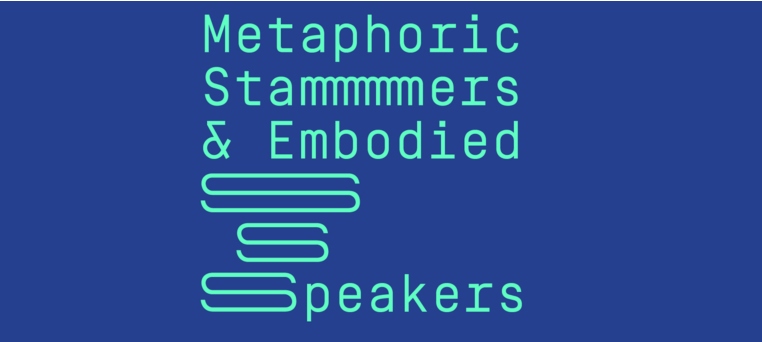Metaphoric Stammers and Embodied Speakers: an interdisciplinary conference exploring cultural and clinical practice in the area of dysfluency

(Humanities Institute, University College Dublin, 12 October, 2018)
Keynote speaker: Chris Eagle, Emory University, Centre for the Study of Human Health (Dysfluencies: On Speech Disorders in Modern Literature, 2014; Talking Normal: Literature, Speech Disorders, and Disability, ed. 2013)
The conference will explore the embodied experience and cultural construction of stammering from the collaborative perspectives of literary/cultural analysis, speech therapy and neurological research. The aim of the conference is to develop an interface between literary, cultural and clinical practice in the area of speech ‘disorders’, generating new forms of communication and exchange across these fields.
Despite the centrality of literary/cultural studies to the emergence of Dysfluency Studies (Marc Shell, (opens in a new window)Stutter 2005; Chris Eagle (opens in a new window)Dysfluencies 2014), the 2017 Oxford Dysfluency Conference had no humanities-based papers. This conference addresses this imbalance, bringing cultural analysis into genuine exchange with scientific and therapeutic practice, and necessarily negotiating the tension between a medically-inflected model of ‘recovery’ and an emergent challenge to cultural constructions of ‘normal’ speech. Dysfluency is explored less as a ‘disorder’ to be treated, than a form of communication that highlights the intricate relationship between speaking and being heard, vocal agency and cultural reception.
Literary culture has provided a rich and complex store of information about how stammering has been represented and interpreted at different historical junctures, within diverse cultural contexts and in relation to the variables of gender, class and ethnicity. The stammer has also been harnessed as a metaphor for how literary language works, how it operates at the limits of its expressive resources, occupying a territory that circles the paradoxical power of the ineffable. Recent work in the humanities, however, has signalled the need to balance such metaphorical readings with a sense of the corporeal experience of dysfluency, what Jay Dolmage has called ‘the embodied struggle for expression’ ((opens in a new window)Disability Rhetoric 2014). This renewed focus on embodiment invites diverse, interdisciplinary approaches that serve to accentuate the embodied experience of stammering in its neurological, therapeutic and cultural forms.
For further information, please visit the conference website ((opens in a new window)https//:metaphoricstammers.wordpress.com) or email dysfluencyconference@ucd.ie.
Organiser: Dr Maria Stuart, School of English, Drama, Film and Creative Writing, UCD.